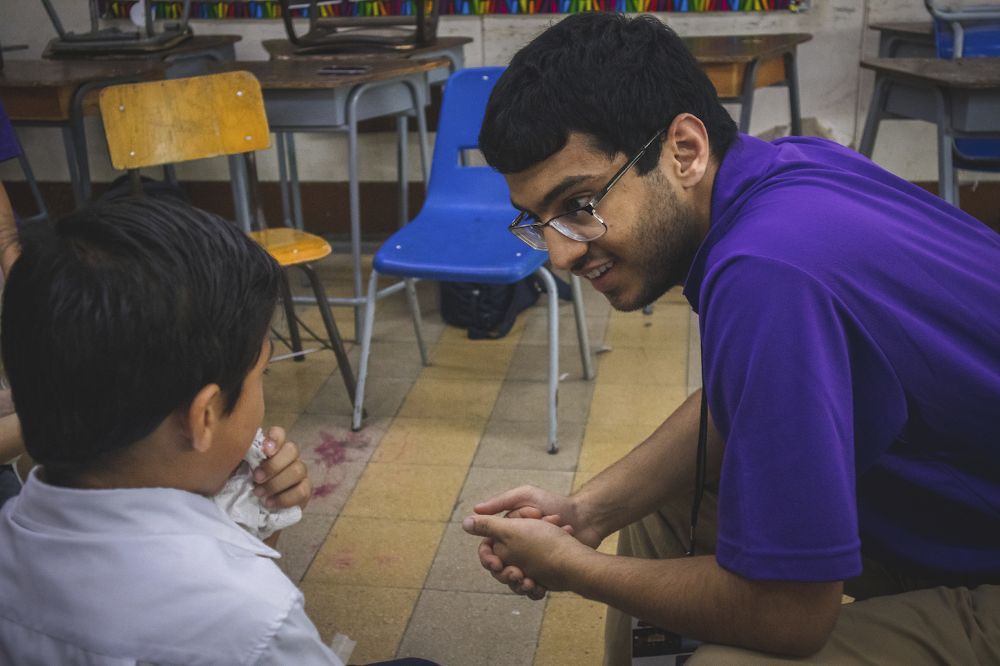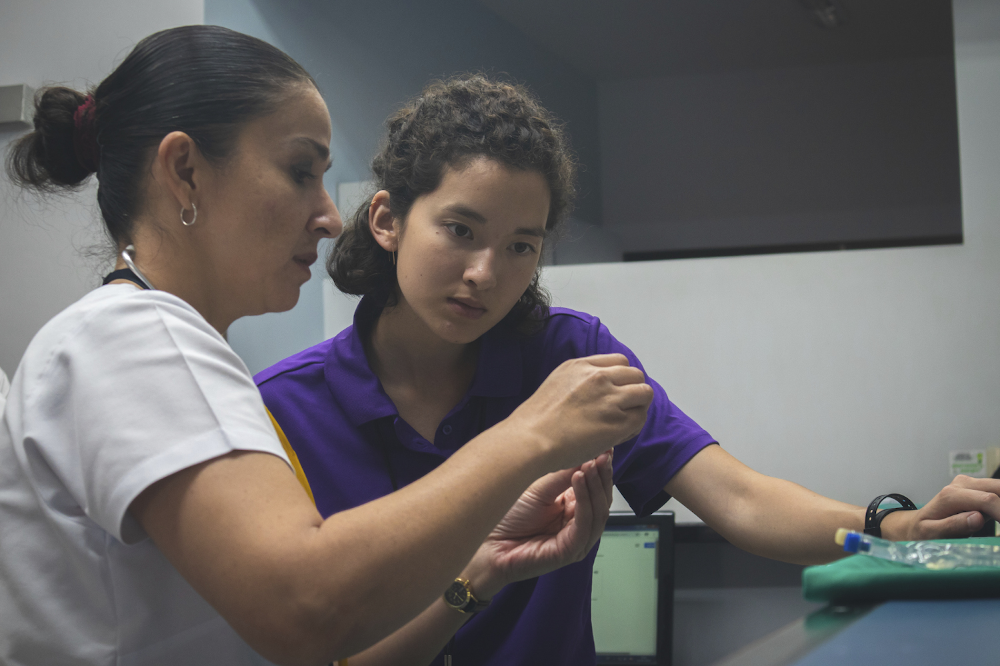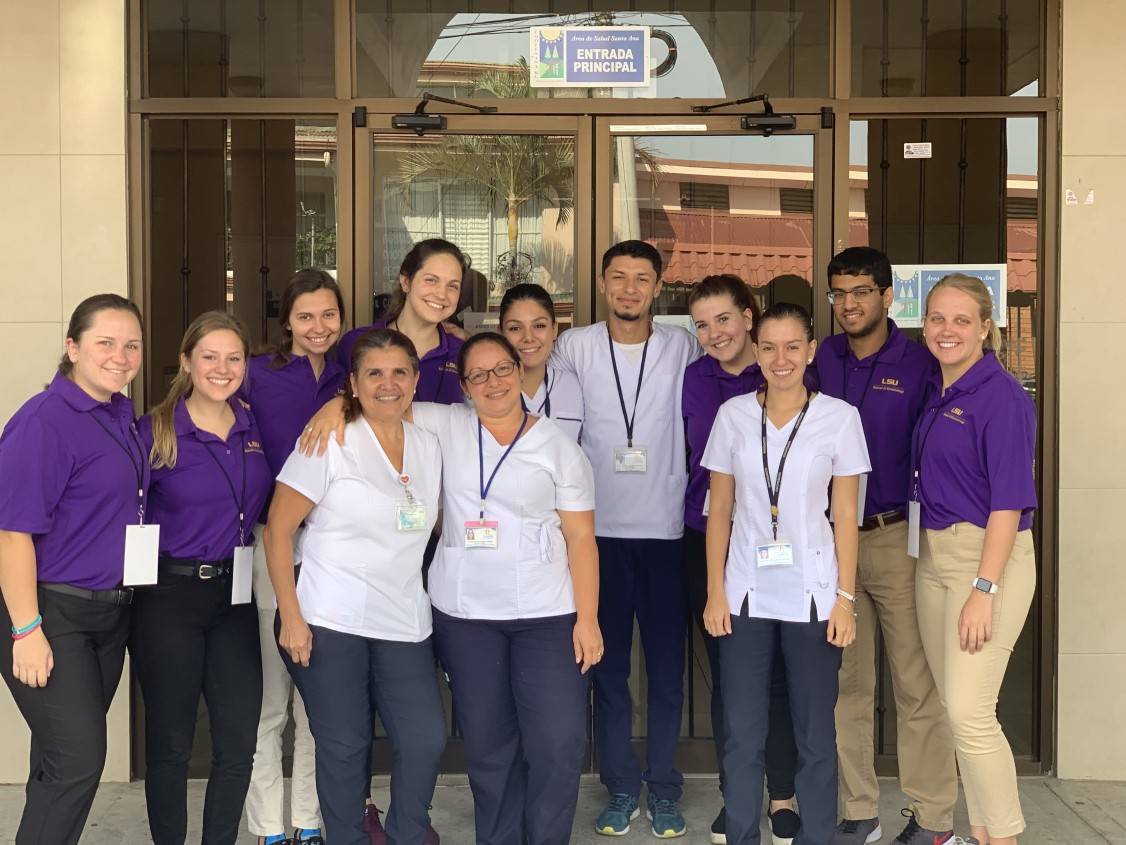Care, Compassion, and Culture: Service-Learning in Costa Rica
LSU School of Kinesiology students travel to Costa Rica for hands-on medical experience and cultural exchange.
BATON ROUGE—LSU School of Kinesiology students traveled to Costa Rica to work with varied allied healthcare professionals in May 2019, where they assisted the practice and learned effective ways to communicate about patient care across cultures as part of a service-learning study abroad course.
By taking Drs. Amanda Benson and Meghan Jackson’s Kinesiology (KIN) 4505: Human Movement Practicum course, students worked closely with doctors and nurses to help provide care to San Jose community members in clinical settings such as traditional exam rooms, emergency rooms, laboratories, and in schools where children received physical exams. Most of the students were majoring in athletic training or Kinesiology with a concentration in human movement science. These students aspire to pursue careers as athletic trainers, occupational therapists, physical therapists, physicians and physician’s assistants.
“Working in public health clinics is a natural fit with service learning,” said Benson, professor of professional practice in Kinesiology. “These students were able to work with populations that they would not normally have gained experience with and were able to help clinicians provide services to their patients.”
Through Americas Educational Programs (AEP), Drs. Benson and Jackson formed a partnership with the Coopasana Clinic, which is part of Costa Rica’s universal healthcare system. The clinic’s accessibility and volume of patients ensured LSU students would serve the community’s most pressing healthcare demands and also interact with primarily Spanish-speaking citizens.
“Coopasana is primary care service, so they are [on] the front lines of seeing the needs of the community,” said Dr. Roberto Rodriguez-Levi, the director of AEP and facilitator of the partnership. For more information on AEP and its educational programs, please visit: http://americaseduprograms.com/
One of Costa Rica’s recent healthcare initiatives is to provide check-ups for children in schools, which includes administering vaccines, measuring height and weight, and testing vision and hearing. LSU students served as assistants to the physicians performing these physicals and interacted with children, which naturally “the kids loved,” added Benson. [Image 1246]

LSU senior Ishan Mehrotra assisted nurses in local schools with health screenings such as vision, hearing, and height/weight.
Dr. Amanda Benson, School of Kinesiology
These kinds of patient care interactions also addressed another significant learning objective for this course—cultural competency in various medical situations.
Since the doctors who served as their mentors ranged from being fluent to speaking very little English, students learned how to say key medical terms in Spanish during their breaks from the clinic. When language seemed too cumbersome, students and mentors would also use charades to convey meaning.
“It was eye-opening that we could learn so much from that [nonverbal communication],” remarked Caroline Velasquez, a senior majoring in Kinesiology.

LSU senior Caroline Vasquez assists a local nurse in the Emergency Department of the Coopsana Clinics in San Jose, Costa Rica.
Dr. Amanda Benson, School of Kinesiology
In their reflective journals—a staple of any service learning course—students indicated that they were able to piece together the terms they had learned and figure out some of what was said in the exam rooms by the end of their experience abroad.
“You might have a patient that doesn’t speak the language or doesn’t understand medical terms; [so] you’ve got to figure out communication, which is number one,” Dr. Jackson emphasized.
Dr. Jackson, who is also the coordinator for the pre-professional students, said that although students will continue to hone their medical skills for several more years, the opportunity to learn cultural sensitivity and professionalism now was invaluable.
LSU students who choose to practice in Louisiana after they graduate will likely be caring for Spanish-speaking people and also people from other cultures. As the world has become more interdependent, courses like KIN 4505 will continue to serve as bridges that connect people of different cultures, languages and levels of access.
Whether they study in San Jose (2,704 miles south east or an almost 60-hour drive on I-10), or they engage their local community, students must be willing to cross that bridge.
It was obvious to Dr. Rodriquez-Levi that these LSU students were prepared for that journey.
“I was so happy they were mobilized from their comfort zone,” he said. “[When] you dare yourself, you prove yourself.”
AEP offers programs in several fields including healthcare, public policy, and mass communication that develop international partnerships and promote multicultural understanding among the participants. Dr. Rodriguez-Levi wants to expand their work to more departments at LSU and give students from all disciplines the opportunity to learn from Costa Rica’s culture and people. Please contact him at [email protected].
